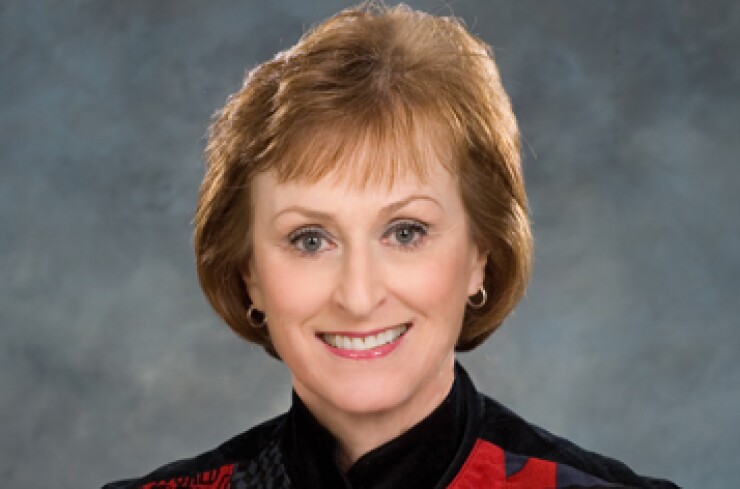LOS ANGELES — The Federal Drug Administration’s move to regulate nicotine down to non-addictive levels has some analysts wondering how that might impact states that depend on tobacco taxes for revenue if more people quit smoking.
The FDA proposed regulating nicotine in cigarettes down to non-addictive levels in late July – just seven months after Golden State voters passed Proposition 56, a $2 a pack increase on cigarettes aimed at providing additional funding for doctors and dentists who take Medi-Cal patients.
The move begs the question of how states, which received $18 billion in revenues from tobacco taxes in 2016, according to the U.S. Census Bureau, could make up the shortfall.

California voters in November approved a $2-a-pack increase on cigarettes so it could pay more to doctors and dentists who see Medi-Cal patients. The uncertainty at the federal level around Republican plans to axe Obamacare combined with the lower reimbursement level for patients insured through Medi-Cal had meant that many doctors and dentists were turning away patients, who did not have corporate sponsored insurance.
The FDA move could mean fewer smokers if their cigarettes are less addictive to them, thus less tobacco tax revenue for many states.
About 3.1 million of California's roughly 39 million residents are cigarette smokers, according to the state's Public Health Department. The tax increase is expected to generate up to $1.4 billion in the first year.
The decline in the number of smokers has already been a problem for tobacco bonds, said Marilyn Cohen, chief executive officer with Envision Capital Management.
In California, the question is whether there is really any flexibility to tax more somewhere else to make up for any shortfalls in tobacco tax revenues.
Given a Democratic legislature, California could look for solutions already being contemplated in Seattle and New York – a millionaires tax; or surtax on the affluent, Cohen said.
California voters since 2004 have approved three measures raising income taxes on higher earners, beginning with 2004's Proposition 63, a surtax on income above $1 million with proceeds directed toward mental health services.
In 2012, they approved Proposition 30, a temporary tax hike package that raised the sales tax rate and tax rates on single filers with annual income above $250,000. In 2016, they passed Proposition 55, which extended the income tax rate increases, but not the sales tax hike, through 2030. Proposition 55 was passed in the same election.
Gabriel Petek, an S&P Global Ratings analyst, said he doesn’t want to speculate on what form any theoretical additional tax might take. The ratings agency has mentioned in reports on the California economy that in a recession the state does not have a lot of wiggle room given all the tax measures passed while the state has been doing well economically.
"In our view, the state is using up a significant amount of its taxing flexibility," Petek said. "The ability to raise it further is limited when the top rate is 13.3%."
The state currently holds issuer ratings of A-plus, Aa3 and AA-minus from Fitch Ratings, Moody’s Investor’s Service, and Standard & Poor’s. All three rating agencies have boosted the state’s ratings over the past two years. California's
This year state lawmakers, seeking to fund repairs to the state's decaying transportation network, passed a gasoline tax that, affecting a wider swath of the public, has come under fire. A talk radio show host has spearheaded a recall drive against an Orange County lawmaker who voted for Senate Bill 1.
At a press conference this week, New York Mayor Bill
"It can be done very quickly," de Blasio said. "It’s based on models that have worked before.”
De Blasio has
“The Welfare State of California will most definitely find another way to tax us and blow the money," said Cohen. "They will probably increase the tax on the vapor smokers, and maybe another progressive surtax on the wealthy like Seattle, Wash. just passed."
Another option is to reduce services -- and there has been some discussion around that if the federal government were to cap or provide block grant options to the state for Medi-Cal services.
A millionaire’s surtax is not a foregone conclusion in California, particularly since the marginal tax rate is already elevated, Petek said.
The state has few options left beyond a surtax if the tobacco revenue doesn't live up to expectations, Cohen said. The tax does include vapor cigarettes, which could lessen the blow, she said.
Though Petek said that California's revenue base and tax system was designed when the economy was quite different from what it is today, the state has had little success thus far in passing tax reform that gets it away from its dependence on income taxes.
The California Franchise Tax Board has shown that the top 1% of earners paid 48% of all personal income tax in the state in 2015, the most recent figure, Petek said.
"Personal income tax makes up 70% of the state's revenue, so you can see that the state general fund is basically reliant on a small percentage of taxpayers for one-third of its revenue," he said.
Cohen added, however, that she thinks the state will eventually have a "Come to Jesus," moment as she says happened in Maryland.
"They taxed and taxed -- and all the projections didn't work out, because all of the wealthy people left the state," she said.
Northeast Regional Editor Paul Burton contributed to this article.





